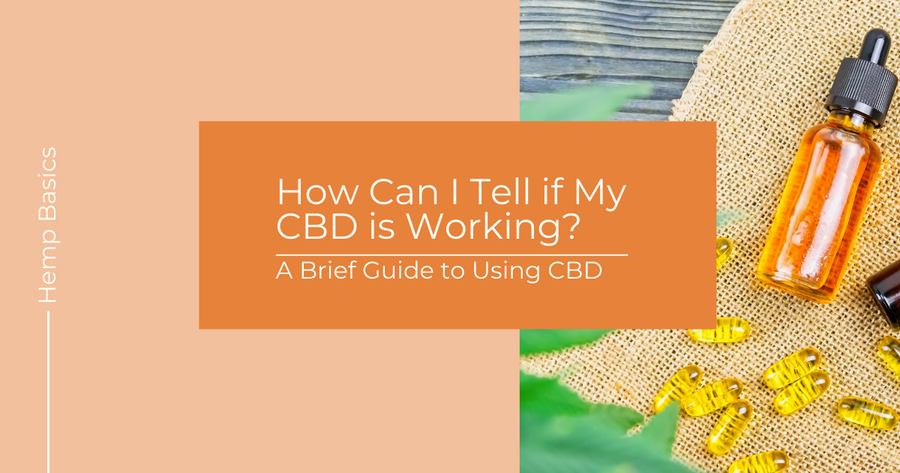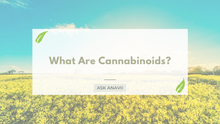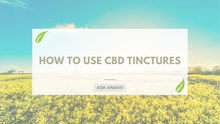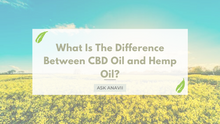The term "cannabinoids" is sure to come up in conversations about hemp and marijuana products. But just what are cannabinoids anyway?

What Are Cannabinoids?
If you've heard of CBD, you've most likely heard of the term "cannabinoids” but you may still be wondering, “What are cannabinoids exactly?”. Well, cannabinoids are naturally occurring chemical compounds that help maintain balance in the body. They can be found in our bodies and in plants like hemp.
The hemp plant alone has over 100 cannabinoids, including CBD, and they mimic the effects of the cannabinoids found in our bodies, called endocannabinoids. They work together with other active ingredients in the plant to produce a variety of effects ranging from joint relief to sleep support. Research seems to show that cannabinoids such as CBD can provide loads of benefits for the user.
Curious? Before we answer the question “what are cannabinoids?” further, here's a video that might help you out:
How do cannabinoids work in the body?
When there are stressful changes in the body’s external environment, our Endocannabinoid System (ECS) is the part responsible for maintaining harmony. This adaptation to keep the right biological balance is a process known as homeostasis.
Many cannabinoid receptors exist in the human body. They’re attached to the cell membranes of our organs, central nervous system, and other systems. Similar to our skin's receptors that initiate sweat release when the temperature is too hot, cannabinoids interact with our ECS's receptors and influence them to create balance in a variety of bodily functions.
What are cannabinoids used for?
There are numerous cannabinoids found within the hemp plant and seemingly endless ways that they can affect our health and wellness. The most well known and studied cannabinoids are CBD and THC. However, there are over 100 others that we’re still learning more about.
THC
THC, also known as tetrahydrocannabinol, is a compound found in higher concentrations in the marijuana plant and is responsible for its intoxicating effects or high. THC is also found in the hemp plant but by law, it must be under 0.3 percent, which may have an intoxicating effect depending on the weight of the unit. For example, 0.3% means 3mg/g by weight. If your gummy weighs 5grams, a product may legally contain up to 15mg of THC.
Synthetic THC Marinol is an approved pharmaceutical that supports discomfort relief, nausea and stimulate appetite. The THC used in Marinol is chemically similar to plant derived THC but is synthetically produced.
While pharmaceutical grade Marinol is high quality, the synthesis of THC has more recently become quite popular in the market because it is a way for brands to skirt regulatory issues, interstate commerce concerns and ultimately the restrictions of the Controlled Substances Act.
Before COVID most people just knew of the plant versions of THC: THCA, ∆9-THC, and THCVA. Now, chemists and manufacturers have gotten innovative.
By using conversion methods, a chemist is able to use the starting material of CBD isolate, add reagents (chemicals used to cause chemical reactions) allowing for the chemist to manipulate the molecular structure thereby converting CBD into ∆8-THC, and other variations like THCP, THCO, THCJD.
When this synthesis occurs additional unknown compounds are formed in the process making the consistency and safety of these THCs concerning.
In addition, you must be careful with THC because each variation of THC is different and full panel testing does not test for reagents used to manufacture these cannabinoids.
But not to worry! At Anavii we do the vetting for you. The high-THC products sold through our store are 100% naturally derived from the plant so you are consuming the EXACT SAME THC that is found in cannabis. No conversions or synthesis!
CBD
CBD, also known as cannabidiol, is one of the most widely used and researched compounds in the hemp plant and is what we at Anavii Market specialize in. It is considered to be one of the wonders of holistic medicine, and once separated from the plant can be purchased in various forms; ranging from capsules to topicals. Unlike other cannabinoids like THC, CBD does not have any intoxicating effects. Its primary function is to help regulate your endocannabinoid system to maintain harmony within the body.
CBD’s therapeutic benefits may be linked to anandamide, also known as the "bliss molecule". This substance acts as your body’s natural antidepressant. Studies have shown that the consumption of CBD is directly correlated with higher levels of anandamide. They discovered that CBD helps to prevent the breakdown of anandamide, allowing the body to maintain its levels and further support actions related to joint relief, mood and stress.
As it turns out, chocolate also contains anandamide, as well as compounds to slow its breakdown. This explains the noticeable boost in mood and stress relief when you eat some!
Apart from the commonly known uses for CBD, it is being researched for a multitude of varying conditions and we look forward to understanding what this research will uncover!
What are cannabinoids that may be less common?
THCA
THCA is a cannabinoid that is abundant in the raw cannabis plant, including hemp, and converts to THC when exposed to high temperatures during extraction or under heat or sunlight. Unlike THC, it has no intoxicating effects, and can support upset stomach and muscles spasms.
CBDA
CBDA is a cannabinoid that also comes from the raw hemp plant and converts to CBD when exposed to heat or sunlight. It also has no intoxicating effects. A 2008 study indicated the effectiveness of CBDA to act similar to NSAIDs but without the long-term liver issues.
CBN
CBN is a cannabinoid that forms when THC breaks down. It has mild mind-altering effects and mostly supports sleep because of its sedative qualities.
CBG
CBG is a non intoxicating cannabinoid that is usually found in smaller amounts in CBD-dominant plant varieties; however, there are now CBG dominant plant varieties that are high in THC with little to no THC. CBG is beneficial in supporting mood and is a pharmaceutical target for varying mental health concerns.
CBGA
Interestingly CBG has a precursor cannabinoid called CBGA which is the "mother cannabinoid." No matter the variety, CBGA is the very first cannabinoid the hemp or cannabis plant produces. All other cannabinoids naturally convert in the plant from this starting point depending on time, temperature and varying stresses.
THCV
Though similarly named to THC, THCV is a compound that possesses much different qualities, but most notably tends to support appetite suppression.
CBDV
Similar to THCV, CBDV is a cannabinoid that is also believed to support appetite suppression.
It is important to remember that, although we cannot confirm the effects of these cannabinoids in the body just yet, research looks promising towards promotion of overall health and wellness.
What are Cannabinoids? Let's Recap!
- Cannabinoids are natural compounds found within the cannabis plant.
- Cannabinoids mimic similar compounds found within our body.
- Cannabinoids interact with our Endocannabinoid System (ECS) to maintain balance
- Cannabinoids are numerous in variety! There are over 120 in the hemp plant. CBD and THC are the most well known.
- Cannabinoids are being researched nationally, internationally, and even in space!
Looking for CBD Products? Contact Anavii Market Today!
We hope this “What are Cannabinoids?” guide has helped you understand the micro world that goes on within our body and within the hemp plant. If you have any questions, which most do, we're here for you! We're happy to discuss any of your CBD questions more in depth so feel free to contact us!.
- Call us at 502-209-8808
- Email us at wellness@anaviimarket.com
- Click the chat box icon in the lower right
At Anavii Market, we're here to help your wellness journey through education and our curated collection of high-quality CBD products. All products on our site have passed our industry leading verification process. Our promise is personal.









